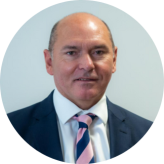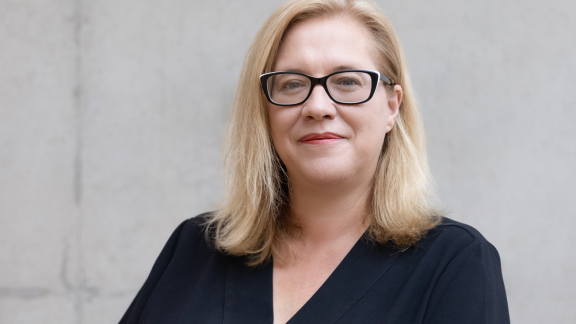Ifti Majid, CEO, Nottingham Healthcare NHS Foundation Trust & Chair, Mental Health Network
Ifti qualified as a registered mental health nurse in 1988, training at St George’s Hospital in London. He has held a range of clinical posts in adult mental health services, both in acute inpatient and community settings, and continues to hold an active mental health nursing registration. Ifti is Chief Executive of Nottinghamshire Healthcare NHS Foundation Trust.
Having completed post-graduate management studies at Sheffield Hallam University with a particular interest in business process redesign, Ifti moved into director roles in 2008. A great supporter of the benefit of integrated systems on improving outcomes for local populations, Ifti has led the development of Derbyshire’s Anchor Charter and was the lead CEO for Derbyshire Provider Collaborative at scale.
Ifti is passionate about inclusion and driven to make a personal impact on diversity in a healthcare setting. He is privileged to be the co-chair of the NHS Confederation BME leaders' network.
Marsha McAdam, Vice-chair, Mental Health Network and Lived-experience Ambassador
As an expert by experience, influencer, and ambassador, Marsha is committed to bringing about positive change within the mental health sector. She identifies as having a diagnosis of borderline personality disorder (BPD) and physical health comorbidities. Marsha is a Churchill Fellow (2023) and a recipient of the President’s Medal from the Royal College of Psychiatry (2023).
After receiving life-changing mentalisation-based therapy (MBT), and with the support and recognition of those working with her, Marsha embarked on a venture to use her lived experience to inform policymakers and clinical staff and support service transformation in both physical and mental healthcare.
More recently, Marsha has initiated, organised, and led a national personality disorder and stigma project with key UK clinical, voluntary sector, and policy leaders. Marsha occupies important advocacy and advisory positions including as an ambassador and peer consultant for Centre for Mental Health, vice-chair on the NHS Confed’s Mental Health Network, and expert by experience for Equally Well UK.
She has sat on some of the most transformative boards and panels, including being a member of the government's Mental Health Act Review Team, a founding member of the Speaker Collective, and the Lived Experience Group for Equally Well.
Marsha is also a national speaker on matters such as parity of esteem, personality disorder, stigma, and discrimination. Having the opportunity to help others enables Marsha to remain positive and is essential to her wellbeing.
Rebecca Gray, Director, Mental Health Network
Rebecca Gray was appointed as the new director of the NHS Confederation’s Mental Health Network and began in post in January 2025.
She was formerly chief executive of the Maudsley Charity, leading the organisation since 2016, which involved working in partnership with South London & Maudsley NHS Foundation Trust and King's College London. The charity is the largest dedicated mental health fund in the UK and has a focus on improving the effectiveness and equity of mental health services.
Prior to her time at the Maudsley Charity, she worked for The King’s Fund, having also worked in the health sector since 1997, initially at The Alzheimer’s Society before holding senior roles in a number of healthcare regulators.
Sir James Mackey, Chief Executive, NHS England
Sir James became Chief Executive of Newcastle Hospitals NHS FT on 1 January 2024.
He was previously Chief Executive of Northumbria Healthcare and during this time held a two-year secondment in a national role as Chief Executive of NHS Improvement. He was knighted in 2019 for services to healthcare and was at the forefront of the region’s response to the Covid-19 pandemic, which saw his Trust set up its own factory to make PPE.
Sir James was Chair of the NHS Customer Board for Procurement and Supply and was appointed by NHS England and NHS Improvement as Senior Responsible Officer and National Director of Elective Recovery for the Elective Programme in Autumn 2021. He was acting Interim Chief Operating Officer of NHS England for a period in 2023.
Jim took up post as Interim CEO of NHS England on the 1st April 2025 to lead the transition process of NHSE being taken back into DHSC, a financial reset for the NHS and implementation of the 10 Year Plan.
Sally Warren, Director General for 10 Year Plan, DHSC
Sally Warren is Director General, 10-year health plan, leading a joint DHSC and NHS England team. Prior to this, Sally was the director of policy for five years at The King’s Fund. Sally has over 20 years of experience working in health and care, with roles including director for social care policy at DHSC, director of programmes at Public Health England, director of EU exit preparedness and response at Defra, and deputy chief inspector at Care Quality Commission.
Claire Murdoch CBE, National Mental Health Director, NHS England
Claire has worked for the NHS for 40 years and is a registered nurse. After holding positions in hospital, community, substance misuse, and learning disabilities services, she joined Central and North West London NHS Foundation Trust as director of nursing and operations in 1999. In 2007, she became the chief executive, a position she still holds today.
In June 2016, she was also appointed as national mental health director at NHSE and has been working with the national mental health team to deliver the Five Year Forward View for Mental Health and more recently NHS England’s Long-Term Plan.
In July 2019, she took on responsibility as the director with oversight of NHSE’s Learning Disability and Autism programme.
Dominic Hardisty, CEO, Avon & Wiltshire Mental Health Partnership NHS Trust
Dominic started his role at AWP in August 2019, having previously worked as chief operating officer and deputy chief executive at Oxford Health NHS Foundation Trust.
With an MBA from Harvard Business School, Dominic has over 20 years’ leadership experience, leading teams to transform services across acute, community, mental health, and children's/young people's pathways. Dominic has led responses to CQC inspections and formation of partnerships across primary, acute, community, and social care.
Since joining AWP, Dominic has been motivated by his commitment to support teams in delivering outstanding care for service users and their families, friends, and carers. To achieve his vision of ‘Outstanding AWP’, Dominic has focused teams across the trust on delivering high-quality care, developing outstanding people, providing sustainable services, and delivering care in partnership.
For Dominic, one of the best parts of his role as chief executive of AWP is to celebrate positive practice across the team, and he actively seeks to identify achievements that team members across the trust are proud of.
Emily Evans, Executive Director of Strategy and Transformation, Everyturn Mental Health
Emily has dedicated over 20 years to the healthcare sector, with 15 of those years spent in commercial leadership roles in the third sector. Throughout her career, she has guided teams through significant organisational change. Through her strategic vision and inclusive leadership style, Emily has created high-performing teams, nurturing a culture of excellence and innovation.
Since joining Everyturn, Emily has established a new commercial team, which has significantly boosted capacity to deliver integrated and effective services, driving a culture of collaboration and continuous improvement. Emily is deeply passionate about sustainability and champions a belief that organisations can be powerful, positive change-makers. She emphasises the importance of aligning organisational policies and values with sustainable practices, to create a better future for everyone.
Haris Sultan, Non-Executive Director for Citizens and Future Generations, NHS West Yorkshire ICB
Haris is a dynamic and forward-thinking leader dedicated to shaping the future of healthcare through innovation, governance, and strategic transformation. He is strongly committed to improving patient outcomes and ensuring long-term sustainability in healthcare systems.
At the local level, Haris served as the youngest Non-Executive Director for Citizens and Future Generations on the NHS West Yorkshire Integrated Care Board. In this role, he focused on critical areas such as workforce development, prevention, climate change, and digital transformation—ensuring that the NHS is equipped to address future challenges. He now works with organizations across the country, supporting them in embedding future-focused governance structures within the NHS.
Nationally, Haris has played a key role in healthcare policy and strategic initiatives as a member of the National Children and Young People's Board at NHS England. His contributions have helped advance key commitments from the NHS Long Term Plan, particularly in addressing health inequalities through initiatives such as CORE20PLUS5. His expertise is also recognised through his participation on several advisory boards, including the NHS 10 YP Oversight and Accountability Group, the Centre of Young Lives and the Centre of Health Economics.
Haris has a passion for public and patient involvement due to his personal experience with mental health and founded the National Network of Youth Forums working with 60 NHS Trusts. He authored a report presented to the United Nations Committee on the Rights of the Child on behalf of the NHS, provided strategic advice to the UK government on vaccinating children and young people during the COVID-19 pandemic, and conducted a national report on health inequalities, advocating for these issues to be embedded in medical education. Currently he is taking a year out of his medical degree to pursue an MBA at UCL’s Global Business School for Health.
Dr Ify Okocha, CEO, Oxleas NHS Foundation Trust
Dr Ify Okocha qualified in medicine in 1985 and, after training in psychiatry, obtained his membership of the Royal College of Psychiatrists in 1992. He was appointed consultant in 1996 and in the same year obtained his Doctor of Philosophy (PhD) degree from the Institute of Psychiatry and King's College, London, where he did his doctorate and post-doctorate research in psychosis and psychopharmacology respectively.
As a clinician, he has received commendations and won many national awards for the high-quality care clinical teams working for him deliver. These include the National Association of Psychiatric Intensive Care and Low Secure Units (NAPICU) Team of the Year award, the Care Services Improvement Partnership 'Positive Practice' award, commendation by Hospital Doctors Award Committee, award of the British Association of Medical Managers, and the Royal College of Psychiatrists Medical Manager/Leader of the Year (2009). He is on the Roll of Honour of the Royal College of Psychiatrists and won the President’s Medal for contributions to psychiatry and the wider health community. Furthermore, he is a distinguished international fellow of the American Psychiatric Association for his exceptional contributions to the field of psychiatry and communities.
His previous position with the trust was as medical director and deputy chief executive, before that, clinical director of Greenwich, where he demonstrated excellent leadership and management skills through his development of high-quality clinical service, innovative service developments, and the implementation of evidence-based clinical practice and research.
Dr Jane Padmore, Chief Executive, Sussex Partnership NHS Foundation Trust
Dr Jane Padmore is a registered mental health nurse and has worked in mental health and learning disability services since 1990. Jane is passionate about driving continuous improvement to ensure high-quality services that are safe, effective, and a good experience. She is particularly interested in how the emerging evidence in relation to neurodiversity can be applied to our services.
Initially starting her career as a healthcare assistant, Jane later qualified as a mental health nurse and has since worked in various clinical, leadership, managerial, and academic roles, across CAMHS and adult mental health, learning disability, and forensic services. Jane was our chief nursing officer before being appointed chief executive in April 2022 and prior to that she was chief nurse and executive director of quality and safety at Hertfordshire Partnership NHS Foundation Trust. Jane is currently the chair of the NHS Confederation Learning Disability and Autism Forum.
Jane was awarded a doctorate from King's College London following a research study into the mental health needs of young people in street gangs. She has published in relation to child and adolescent mental health, nursing practice, and young people involved in street gangs.
Philippa Mariani, CEO, Think Ahead
Philippa was appointed as chief executive in December 2022. She is an experienced leader and has worked in mental health and social care service delivery since 2006, in an advocacy charity, a user-led disability charity and a housing association providing supported living and residential care for people with mental health needs. Before that she was director of development at a national children’s charity and head of consumer affairs at BT. Philippa joined Think Ahead directly from her role as CEO at Mind in Croydon, where she developed strategic delivery partnerships with NHS Trusts, Integrated Care Systems and the voluntary and community sector, including the open access VCSE/NHS collaborative Health and Wellbeing Space in the Whitgift Shopping Centre in Croydon in 2020. Philippa was appointed to the board of Sussex Housing and Care in February 2025.
ZeZe Sohawon, Youth Mental Health Lived-Experience Practitioner and CEO, Emotion Dysregulation in Autism
ZeZe is a lived-experience practitioner and is autistic with lived experience of psychosis and personality disorder. She uses her lived experience of being sectioned for four years as a teen, in psychiatric intensive care and secure units, to impact meaningful change in the world around her, across the UK and beyond.
She is an experienced mental health speaker and has spoken at the Institute for Mental Health, the Royal College of Psychiatry, and NHS Confederation Mental Health Network. She is also a part-time lecturer at two universities for children and adolescent mental health nursing and social work. She has spoken at a TEDx event in 2021 about suicide prevention and mental health struggles she has encountered. In 2022, ZeZe represented the UK at a global youth mental health conference where she was chosen to present flowers to royalty and create a peer support programme for internationally-travelling young people.
ZeZe has worked on a nationally radical youth mental health campaign called Fight for All the Feels, helping to raise £1.2 million towards hiring peer support workers for youth mental health services to combat the detrimental effects of the pandemic on young people’s mental illness and surging demand for referral to statutory mental health services. On an international public-facing anti-stigma campaign for personality disorders, ZeZe has contributed her lived experience and discussed impacting change to senior policymakers. She has also spoken with policymakers and clinicians to ensure that the local psychiatric unit is renovated, consequently generating £4.8 million. Some of the organisations she has worked with include the National Autistic Society, the Centre for Mental Health, and the Speakers Collective.
ZeZe is now CEO and founder of her own mental health and autism charity, supporting autistic young people in mental health units, having raised £330k and built a team of six peer support workers who deliver care to young people in Birmingham.
Zoe Mitchell, Mental Health Network Lived-Experience Board Representative
My name is Zoe Mitchell and I am a service user representative on the MHN Board. I have had treatment and care from a variety of mental health services, including both inpatient and community care.
Having spent two years in out-of-area placements during my inpatient stay, this has instilled in me a great interest in helping to reduce the frequency and length of stay in out-of-area placements. Other changes that I would like to see in the mental health system include a better understanding of autism and neurodiversity, reducing traumatic practices in inpatient care, and a focus on prevention rather than cure - giving service users key skills needed to maintain a state of positive mental wellbeing, rather than just fire-fighting in times of crisis. Sharing my personal experiences is incredibly important to me to help influence these changes.





















